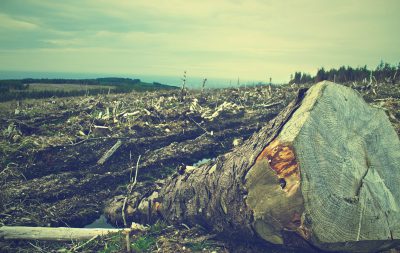Some people think that becoming vegan is an “extreme” choice but if we consider the impacts of animal farming we may just come up with a different view …
animal farming drives climate change
Floods, heatwaves, and droughts are already having a terrible impact. As climate breakdown progresses, it will kill and displace people, create climate refugees, and destroy entire ecosystems and countless species forever. We must take action now and curb the industries doing the most damage. That includes the animal agriculture industry. Animal farming is a leading driver of climate change, and is responsible for more emissions than the fuel from every car, bus, ship, plane, truck, and train on the planet.
Animal farming drives deforestation
Animal agriculture is a leading driver of deforestation. This is because it takes a lot more land to create animal products than plant products, and so swathes of forests are razed to the ground to make way for grazing or to grow feed for farmed animals. Some people blame soy for forest destruction, and they have a point, but the vast majority of soy goes to feed farmed animals reared and slaughtered by the meat trade, especially chickens.
Animal farming drives extinctions
Deforestation is not just loss of trees; it’s the loss of habitats for wild animals. Around 60 percent of all animal populations have been wiped off the face of the Earth since 1970, and farming – particularly animal farming – is one of the leading causes.
Our meat-centric diets are driving species we haven’t discovered, and species we haven’t yet named, to extinction. Things are already so bad that scientists say the sixth mass extinction is underway. Farming animals is driving wild animals to extinction.
Animal farming creates pollution
Animal agriculture is a key polluter of air, land and waterways. There are billions of farmed animals on the planet, each producing waste. These gargantuan quantities cannot be absorbed by the land as fertilizer and so slurry is stored in tanks and lagoons, from which it all too often leaks out, threatening drinking supplies and causing widespread destruction to aquatic wildlife. Slurry, as well as industrial fertilizers, are responsible for killing whole areas of the ocean, known as dead zones because no animal can survive there.
Animal farming is wasteful
It takes 3kg of grain to create 1kg of meat, which makes it a highly inefficient way of using the world’s resources. Animal farming is also wasteful of water – a precious, life-sustaining resource we cannot afford to be reckless with. If everyone shifted to a plant-based diet we could reduce global land use for agriculture by 75 percent. We could feed everyone, and return vast amounts of land back to the natural world.
Animal farming causes unimaginable suffering
Almost anyone who has ever been to a factory farm will find the system impossible to justify. Inside, sentient beings – who experience pain, love, fear, and pleasure in the same way our beloved cats and dogs do – are imprisoned inside cages or forced to stand alongside tens of thousands of others in their own filth. They may never breathe fresh air or get the chance to roam, root, play, or stretch their wings. Many cannot survive the squalid conditions and they die without ever having received care. Those who do survive have only a terrifying journey to the slaughterhouse ahead of them.
Animal farming threatens humanity
Because intensive farms are squalid, stressful places, animals are often given antibiotics just to keep them alive for the few weeks until they are slaughtered. The widespread use of antibiotics means resistant strains of bacteria are starting to emerge. As Director-General of the World Health Organization, Margaret Chan said ‘we face a post-antibiotic era, in which many common infections will no longer have a cure and once again, kill unabated.’
Animal products are harmful to human health
Eating animal products raises the risk of suffering heart disease and type 2 diabetes, while the World Health Organization has classified all processed meats as carcinogenic, and all red meats as “probably” carcinogenic. Is farming animals for their flesh, milk, and eggs really worth all this when there are delicious plant-based meats and other products readily available?
On the other hand… plant-based foods are great for people, planet, and animals
If we ate a plant-based diet, we would need 75 percent less land, which means nature could reclaim habitats and wildlife could flourish.
We could halt climate change and protect our planet for future generations. We could feed every person on the planet a wholesome diet and have the capacity to feed many more as the population grows.
We could protect the seas, stop fishing aquatic populations to the point of collapse, and prevent plastics – much of which comes from fishing fleets – from entering the oceans.
By eating plant-based, we can living compassionately, sparing the most vulnerable from unnecessary and unjustifiable suffering.
And we would each have a better chance of avoiding heart disease, type 2 diabetes, and some cancers.
With all this in mind, does veganism really sound extreme?
Try vegan and see for yourself! Download our free Vegan Starter Kit.
Photo by Clem Onojeghuo on Unsplash



